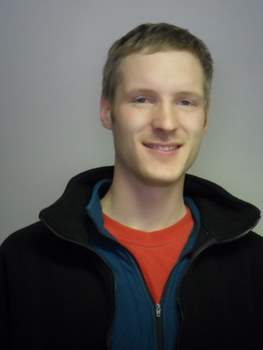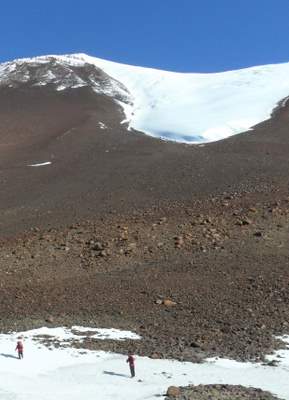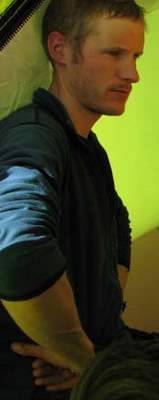Gordon Bromley just recently (1st of December this year) received his Ph.D. in Earth Sciences from the University of Maine. Following our Antarctic adventure, he is off to his next adventure as a post-doctoral researcher at Lamont-Doherty Earth ObservatoryA location used for observing terrestrial and/or celestial events. of Columbia University. Gordon received his bachelor's degree in physical geography from St. Andrews University in Scotland in 2003. After graduation, he was offered a Ph.D. position at St. Andrews working on glaciers in the Himalayan Mountains. He wasn't as interested in the Himalayan Mountains as in Antarctica, so he turned down the opportunity. He then moved to the United States to obtain his master's degree in Quaternary ClimateThe average weather over a particular region of the Earth. Climate originates in recurring weather phenomenon that result from specific types of atmospheric circulation. Studies from the University of Maine under Brenda Hall. Immediately following his master's degree he moved into their Ph.D. program, again under the direction of Brenda.

He is interested in many aspects of climate change. Paleo (ancient) and modern systems of tropical climate change are of interest in addition to his Antarctic research topics. His Antarctic research revolves around the driving factors of ice ages and the history and paleoclimate of Antarctic alpine glaciers. Gordon also is curious about events leading up to abrupt climate change. While he has loved working on scientific questions centered around Antarctica, he has no immediate plans to return after this season. He is currently striking out on his own and has yet to develop a line of research questions to receive funding to return.

Gordon's current projects are in Peru (with plans to expand into Bolivia) and Scotland. This summer he'll be in Peru investigating paleoclimate effects on glacial geology. Accompanying him is a friend who will be working on unrelated Peruvian archaeology problems. In the highlands of Scotland, he's working on the deglaciation history and how it is related to abrupt climate changes. The first time Gordon came to Antarctica was in 2003 as a master's student under Brenda. Their project at the time was reconstructing the deglaciation history of the Reedy GlacierA mass of ice that persists for many years and notably deforms and flows under the influence of gravity. in the Transantarctic Mountains. His first impression of Antarctica was that it was "very sunny and white". He was stunned by the fact that Antarctica was "more beautiful than I could imagine and could be extremely quiet". It was also the first time he had been completely surrounded by Americans!

He was born in Cumbria, England's Lake District region. Gordon chose this career path because he was interested in geology as a child. In addition to this interest, he has always liked snow and mountains, so going into glaciology was a natural decision. He is married to Meg and has two young children. As he is beginning his post-doctoral position at Lamont-Doherty, when he returns from our expedition, he will be moving from Maine to New York. In his spare time, Gordon enjoys climbing, skiing, knitting (real men knit and aren't afraid to purl), cooking, drawing, and gardening.


Comments